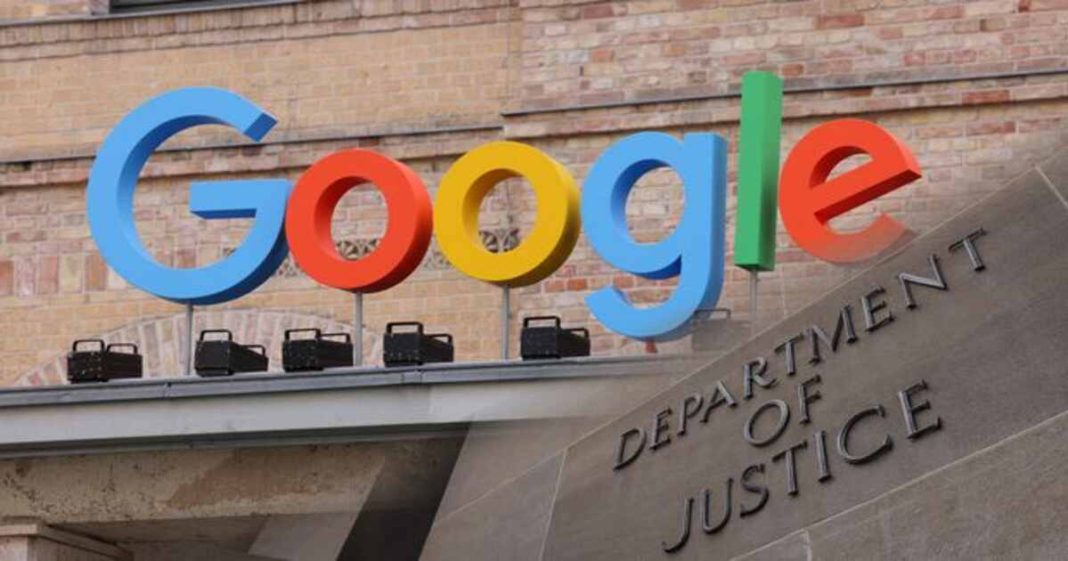The United States Justice Department is seeking a major antitrust ruling against Google, contending the tech giant illegally controlled the online advertising technology market. The case, which was argued over 15 days of trial in Alexandria, Virginia, has now moved to closing arguments as the DOJ seeks its second major win against Google.
Accusations of Market Domination
The DOJ tried to show during the trial that Google did indeed monopolize core areas in the online advertising ecosystem. There are three types involved: publisher ad servers, advertiser ad networks, and ad exchanges, which are intermediaries linking up an advertiser with a publisher. DOJ attorney Aaron Teitelbaum made the point that Google’s dominance of the critical components in the ad tech market allowed it to “rig the rules of the road,” and entrench anticompetitive practices to maintain control.
Teitelbaum described Google as “once, twice, three times a monopolist,” underlining what the DOJ views as a pattern of market manipulation. Another DOJ attorney, Julia Tarver Wood, framed the case in dramatic terms, drawing a comparison to a decision straight out of Charles Dickens’ A Tale of Two Cities. The judge, U.S. District Judge Leonie Brinkema, must determine between a DOJ narrative that an ad market was manipulated, or Google’s defense of business practice. Google’s Defense: Competition and Precedent
Attorney Karen Dunn led the legal team for Google, arguing to Judge Brinkema that the DOJ had failed to meet the legal requirements necessary to prove antitrust violations. Dunn urged Brinkema not to accept what she characterized as an overstretched interpretation of antitrust law by the DOJ. The government has selectively picked evidence, creating a narrow view of the online advertising market that leaves out greater competition and technological advancement, Dunn argued.
Dunn asserted that the moves by Google were business decisions in a competitive setting and, therefore valid. She noted that the nature of the online advertising market remains healthy and that the DOJ’s focus on specific segments of the market only presents a distorted reality.
Struggle of the Publishers about the Dominant Google
Throughout the trial, various publishers shared their experiences of struggling to move away from Google’s ad services. Testimonies revealed that despite dissatisfaction with some of Google’s practices, publishers felt they had no realistic alternatives due to the vast advertising demand tied to Google’s network.
A News Corp representative testified that the company would incur an estimated $9 million loss in ad revenue in 2017 if it chose to leave Google’s platform. This highlights the breadth of Google’s ad network and the prospects for competitors who try to break into the market.
More:Hamas Confirms Death of Female Captive Amid Ongoing Israeli Offensive in Gaza
Potential Outcomes and Broader Implications
The DOJ has proposed significant measures if Judge Brinkema finds that Google violated antitrust laws. Divestment by Google from Google Ad Manager publishing ad server and ad exchange- have been some of the most notable demands. This move is aimed at breaking up parts of Google’s ad empire to promote increased competition in the online ad tech industry.
The stakes of the case are high, though some analysts believe this ad tech case poses a smaller financial threat to Google compared to another ongoing antitrust case. In that case, a judge has already ruled that Google’s control of the online search market constitutes an illegal monopoly. Prosecutors in that case have suggested that Google might need to sell its Chrome browser to comply with antitrust laws.
Efforts to Settle with Regulators
Google has tried to assuage similar fears in Europe as well. This year, it proposed selling its ad exchange to an EU antitrust investigation. That was knocked down, though, with European publishers rejecting that proposal as too meager for shoring up the grip of Google on the ad tech market.
Market Reactions and Future of the Case
In closing statements, Google argues that the case has no legal foundation. As Google’s defense reaches its end, Alphabet’s stocks, however, slightly rise, indicating there is still investor confidence in it.
Judge Brinkema’s ruling could have significant consequences, potentially reshaping the online advertising landscape if Google is found to have violated antitrust laws. With the outcome still uncertain, the case is a pivotal moment in the ongoing debate over the power of Big Tech and its impact on market competition.















